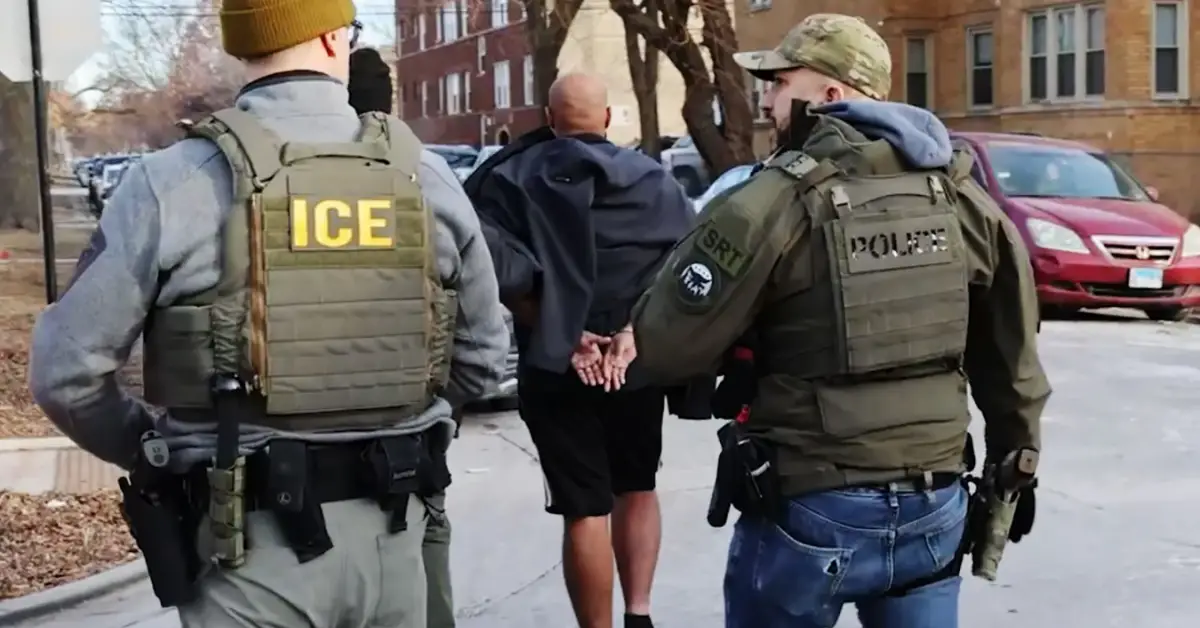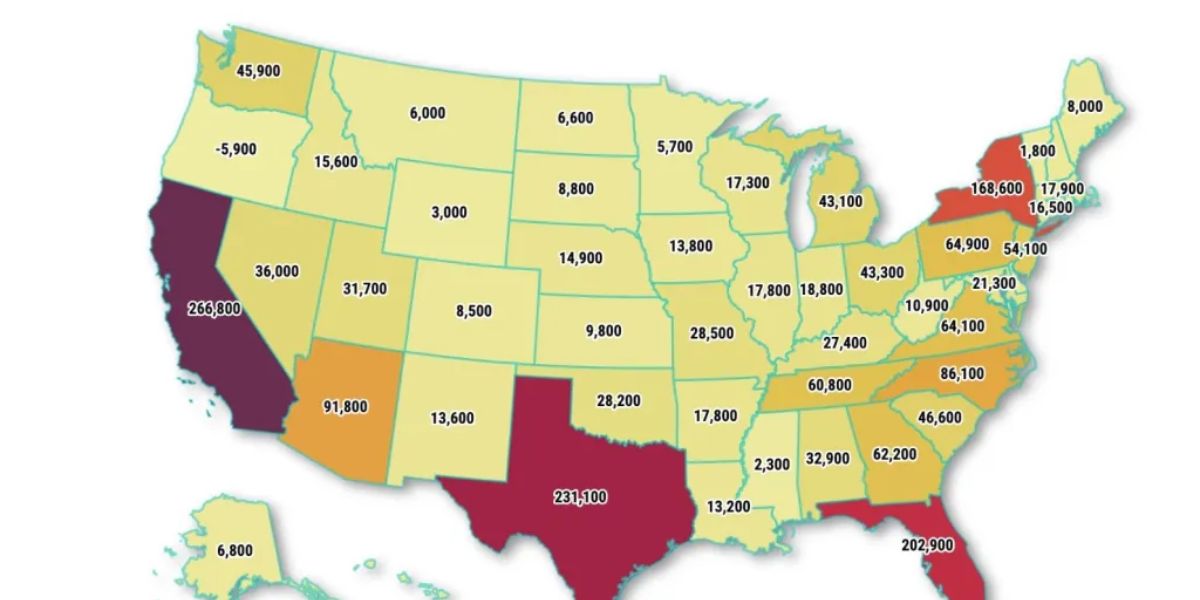Some residents of Waldo County, Maine, have expressed strong concern and frustration following the arrest of two immigrants by U.S. Border Patrol agents after a routine traffic stop in March. The incident has sparked public outcry and fueled an ongoing debate about local law enforcement’s role in cooperating with federal immigration authorities.
The arrest occurred on March 13, when a deputy from the Waldo County Sheriff’s Office pulled over a vehicle for speeding along Route 220 in the rural town of Montville. Shortly after, emergency dispatchers alerted Border Patrol about the driver’s potential immigration status, setting the stage for the arrests that would soon follow.
The sheriff’s office report indicates that a Border Patrol agent responded to the scene and took two individuals into custody: a passenger in the vehicle and a relative of the driver who had arrived at the scene during the traffic stop.
While Sheriff Jason Trundy did not specify the immigration status of the two individuals involved, he mentioned that the Border Patrol agent alleged they were in the country illegally. This statement raised immediate concerns among local residents, many of whom have criticized the sheriff’s office for cooperating with immigration authorities.
In the days following the arrest, the case quickly garnered widespread attention, and local residents began to rally behind the affected family. An online fundraising campaign has raised more than $200,000 to help cover the legal costs of the family involved.
This outpouring of support for the family has underscored the deepening divide in Maine over immigration enforcement, as many progressives are increasingly frustrated with the rise in federal immigration actions under the current administration.
Critics argue that the enforcement measures are tearing families apart, creating fear and anxiety in communities, and asking local law enforcement agencies to become involved in federal immigration enforcement activities.
Waldo County is known for its relatively rural and tight-knit communities, and the controversy has demonstrated that opposition to federal immigration policies is not just confined to Maine’s more urban areas. While larger cities like Portland and Bangor tend to have more progressive populations, this issue has sparked debate in smaller, rural areas like Waldo County.

The backlash also highlights the widespread unease that many residents are feeling about the role of local law enforcement in supporting federal immigration efforts. There are concerns that such actions may further polarize communities and increase fear among immigrant populations, potentially causing long-term harm to community cohesion.
Although the sheriff’s office has been reluctant to release further information about the incident, a citation was issued to the driver involved in the traffic stop for allegedly having a suspended license. This was the only additional detail released by the sheriff’s office, which has referred further inquiries to the U.S. Border Patrol. To date, Border Patrol has not provided any additional information regarding the identities of the individuals taken into custody, nor have they responded to requests for comment on the situation.
The arrest and subsequent fallout have also been widely shared on social media. A TikTok video posted by a local Waldo County resident criticizing the arrest and the actions of Border Patrol has gone viral, amassing more than 900,000 views.
The video highlights the family’s ongoing fundraising effort and the division within the community. Tony Avila, the chairman of the Unity Select Board, said in a statement that he was not aware of the incident until the video surfaced. He expressed surprise at the attention the case had received, especially given that it had taken place in a smaller, more rural part of the state.
Many residents have voiced their concerns about the sheriff’s office’s cooperation with federal immigration authorities. Judith Stoodley, a resident of Unity, explained that she felt compelled to contact the sheriff’s office after hearing about the arrests.
Stoodley was disheartened to learn that local law enforcement had worked with Border Patrol agents in the case. She expressed frustration over the perceived erosion of trust between the community and law enforcement, particularly in light of the arrest of two individuals who have not yet had the chance to challenge their alleged immigration violations.
Belfast resident Caitlin Hills also voiced her concerns, accusing Sheriff Trundy of overstepping his bounds by cooperating with federal immigration authorities. Hills argued that local law enforcement agencies should not be responsible for enforcing federal immigration laws and that cooperation with Border Patrol was only serving to divide the community.
“It just makes the community very scared, frankly,” Hills said. “It continues to degrade our community.” Hills and others fear that such actions may further alienate immigrant families who already feel vulnerable and marginalized in a time of increased immigration scrutiny.
Sheriff Trundy did respond to the situation in a press release following the incident, explaining that the sheriff’s office had followed standard procedure by alerting Border Patrol after receiving information about the driver’s potential immigration status.
According to Trundy, local law enforcement agencies do not have access to the federal databases or tools used to verify an individual’s immigration status, which is why federal agencies like Border Patrol must be notified when such an alert is received.
He emphasized that local law enforcement officers are not permitted to enforce federal immigration laws but are required to inform the appropriate federal agencies when an immigration-related issue arises.
Despite the sheriff’s explanation, many residents remain dissatisfied with the sheriff’s office’s actions and have called for a reevaluation of the role that local law enforcement should play in federal immigration matters. Critics argue that local police departments should prioritize public safety and not become enforcers of federal immigration policies, especially when such cooperation can disrupt families and create fear within immigrant communities.
The controversy in Waldo County has become part of a larger conversation about the growing role of federal immigration enforcement in local communities. As more and more immigrants face deportation and separation from their families, the impact on local communities is becoming increasingly visible.
The case has highlighted the importance of maintaining trust between law enforcement agencies and the communities they serve. As public outrage continues to grow, many are calling for a broader discussion on how to balance immigration enforcement with the protection of community trust and safety.
In the days and weeks ahead, the controversy is likely to continue as more people in Waldo County and beyond express their opinions about the actions of local law enforcement and federal immigration officials. It remains to be seen whether this incident will lead to significant changes in how local law enforcement agencies handle immigration-related issues or whether the community will continue to be divided on this critical matter.
The case has brought attention to the broader question of how best to navigate the complex and often contentious intersection of local law enforcement and federal immigration policy in a rapidly changing political landscape.




